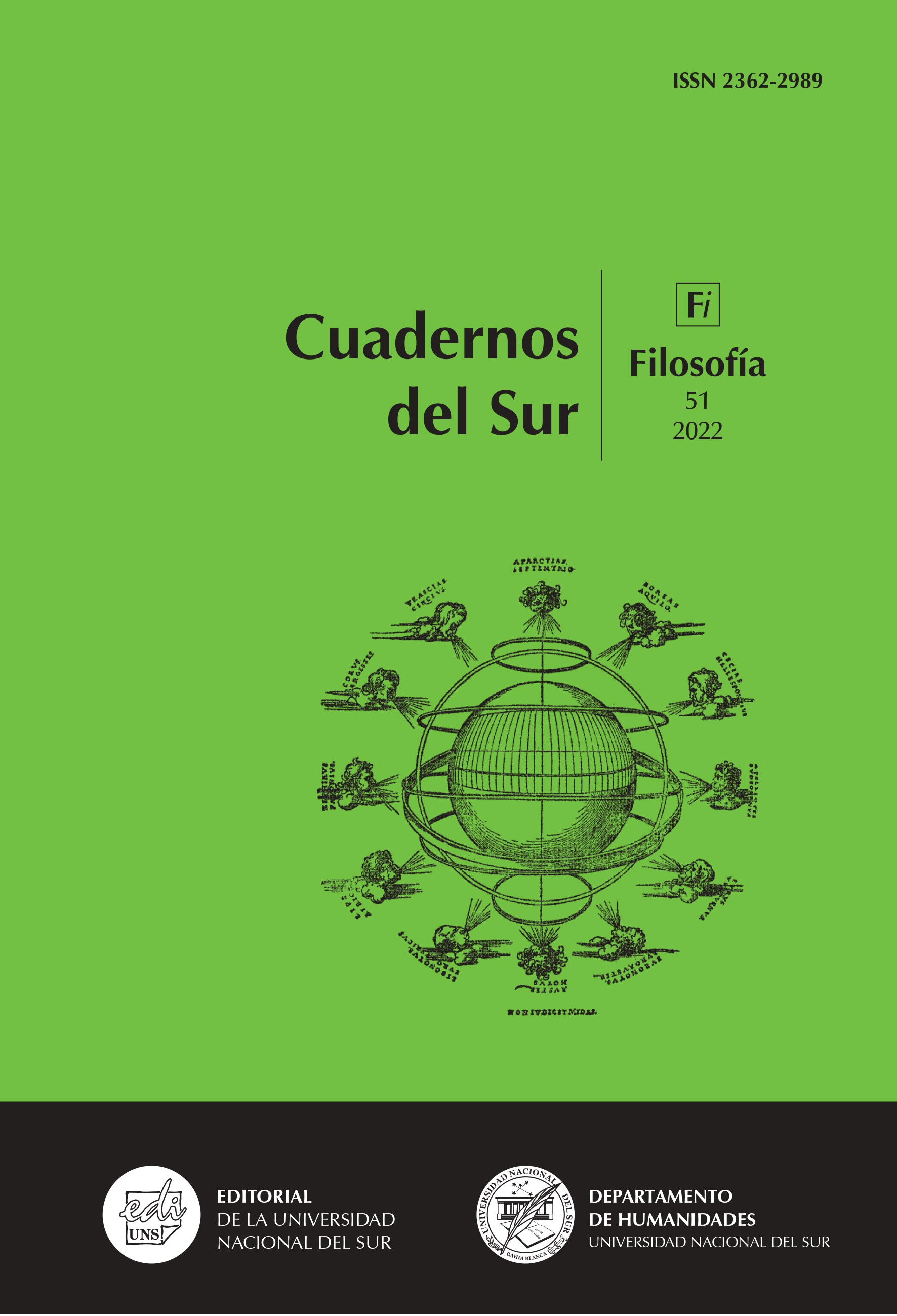Hegel y el nihilismo budista
Keywords:
Hegel, buddhism, nothingnessAbstract
The purpose of this article is to address the nihilistic nature of Buddhism in the Hegelian conception. Our hypothesis is the following: although there is some ambiguity in his considerations about this religion, the nihilistic elements that Hegel seems to identify in Buddhism are strictly based on its relationship with nothingness, a concept that alludes to a return of the individual to the divine substance, indeterminate and ineffable. Nothingness, identical to being, constitutes another denomination for God. In this way, first of all, we will proceed to analyze the concept of religion and its position in history in order to understand the particularities of Buddhism; and, secondly, we will study the references to this religion and its relationship with nothingness.
Downloads
References
Hegel, Georg Wilhelm Friedrich (1973), Fenomenología del espíritu, México, Fondo de Cultura Económica, [traducción de Wenceslao Roces y Ricardo Guerra].
----- (1976), Ciencia de la lógica, Argentina, Ediciones Solar S.A, [traducción de Augusta y Rodolfo Mondolfo].
----- (1984), Lecciones sobre la filosofía de la religión, vol. 1, Madrid, Alianza, [traducción de Ricardo Ferrara].
----- (1987), Lecciones sobre la filosofía de la religión, vol. 2, Madrid, Alianza, [traducción de Ricardo Ferrara].
----- (2000), Enciclopedia de las Ciencias Filosóficas en compendio, Madrid, Alianza, [ed. intr. y notas de Ramón Valls Plana].
----- (2005), Lecciones sobre la historia de la filosofía, vol. 1, México, Fondo de Cultura Económica, [traducción de Wenceslao Roces].
----- (2014), Lecciones sobre la Filosofía de la Historia Universal, Madrid, Alianza, [traducción de José Gaos].
Bernasconi, Robert (2003), “With what must the history of philosophy being? Hegel’s role in the debate on the place of India within the history of philosophy”, en Duquette, David (ed.), Hegel’s history of philosophy: New reinterpretations, Albany, State University of New York Press, pp. 35-49.
D’Amato, Mario y Moore, Robert (2011), “The specter of nihilism: On Hegel on Buddhism”, The Indian International Journal of Buddhist Studies, n° 12, pp. 23-49.
Droit, Roger-Pol (2003), The cult of nothingness, Chapel Hill, The University of North Carolina Press, [traducción de David Streight y Pamela Vohnson].
Halbfass, Wilhelm (2013), India y Europa. Ejercicio de entendimiento filosófico, México, Fondo de Cultura Económica, [traducción de Óscar Figueroa Castro].
Kojève, Alexander (2016), Introducción a la lectura de Hegel, Madrid, Trotta, [traducción de Andrés Alonso Martos].
Oosterling, Henk (2012), “Avoiding nihilism by affirming nothing. Hegel on Buddhism”, en Labuschagne, Bart y Slootweg, Timo (eds.), Hegel’s philosophy of the historical religions, Leiden, Brill, pp. 51-77.
Rathore, Aakash Singh y Mohapatra, Rimina (2018), Hegel’s India: a reinterpretation, with texts, Nueva Delhi, Oxford University Press.
How to Cite
Issue
Section
License
Copyright (c) 2023 Santiago Maneiro

This work is licensed under a Creative Commons Attribution-NonCommercial 4.0 International License.
Aquellos autores/as que tengan publicaciones con esta revista, aceptan los términos siguientes:- Los autores/as conservarán sus derechos de autor y garantizarán a la revista el derecho de primera publicación de su obra, el cuál estará simultáneamente sujeto a la licencia Atribución-No Comercial 4.0 Internacional CC BY-NC 4.0.
- Los autores/as podrán adoptar otros acuerdos de licencia no exclusiva de distribución de la versión de la obra publicada (p. ej.: depositarla en un archivo telemático institucional o publicarla en un volumen monográfico) siempre que se indique la publicación inicial en esta revista.
- Se permite y recomienda a los autores/as difundir su obra a través de Internet (p. ej.: en archivos telemáticos institucionales o en su página web) una vez publicado su trabajo, lo cual puede producir intercambios interesantes y aumentar las citas de la obra publicada. (Véase El efecto del acceso abierto).










